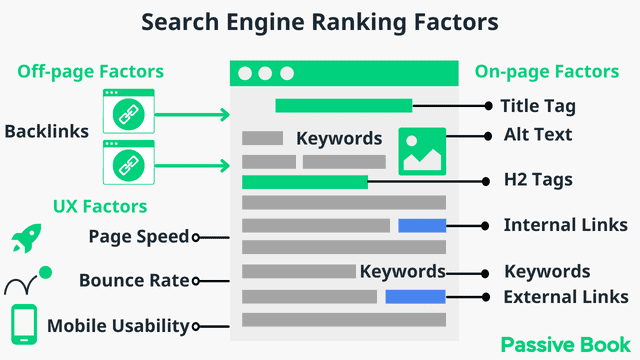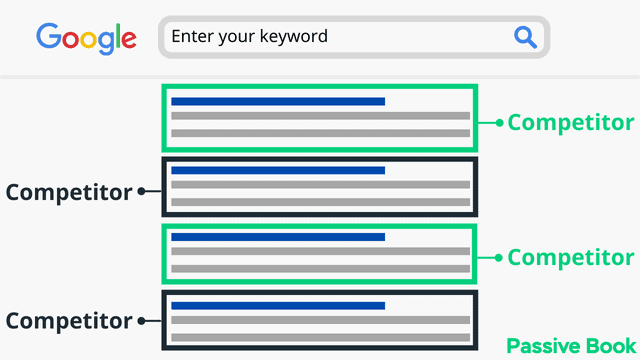Starting an online business can be thrilling, but it’s easy to stumble over simple mistakes that might cost you dearly. Many people assume they have everything covered, but missing a crucial step can disrupt the entire operation. I learned this the hard way when I launched my first online store without proper market research; the products I stocked were not in demand, and I ended up with unsold inventory. This guide will help you sidestep such pitfalls and start your business on a solid footing.
We’ll discuss essentials like aesthetic website design, the significance of a social media presence, and the necessity of a business plan. If you’re on the brink of launching an online venture, these insights are vital. Let’s work together to ensure your online business journey is successful!

- •1. Ignoring Thorough Market Research
- •2. Not Defining a Niche
- •3. Lack of a Business Plan
- •4. Underestimating Startup Costs
- •5. Ignoring Legal Requirements
- •6. Poor Website Design
- •7. Neglecting Mobile Optimization
- •8. Failing to Build an Email List
- •9. Ignoring Seo
- •10. Overlooking Social Media Strategy
- •11. Underestimating Content Marketing
- •12. Not Investing in Paid Advertising
- •13. Poor Customer Service
- •14. Overcomplicating User Experience
- •15. Not Analyzing Competitors
- •16. Ignoring Analytics
- •17. Not Securing Data
- •18. Failing to Adapt to Market Changes
- •19. Spreading Too Thin on Social Media
- •20. Inefficient Operations Management
- •21. Lack of Networking and Partnerships
- •Frequently Asked Questions
- •What Next?
1. Ignoring Thorough Market Research
Before launching your online business, understanding your target market is vital. Market research reveals what your potential customers desire and how they behave. A study indicates that 81% of shoppers conduct online research before buying, and companies that invest in market research enjoy 60% higher profitability. Knowing your audience empowers you to make wiser business decisions and create appealing products or services.
Tools like Google Trends and SurveyMonkey are invaluable for market research. Google Trends unveils popular topics and keywords, providing insights into online conversations. Complement this with SurveyMonkey to gather real-time feedback from your audience. This combination offers comprehensive data to refine your marketing strategy.

Ignoring market research can lead to failure. Many Etsy shops have closed due to a lack of understanding of their niche or customers’ needs. By learning from these examples, you ensure your online business avoids common mistakes and excels in the crowded digital marketplace.
2. Not Defining a Niche
Defining a niche is fundamental for your online business. It helps you stand out by targeting specific audiences, reducing competition, and increasing customer loyalty. A well-defined niche allows you to tailor your marketing strategy to those most likely to benefit from your products or services, leading to higher profitability. For instance, the Solopreneur Grind podcast thrives by focusing on solopreneurs, offering valuable stories and tips for those starting small businesses.

Having a defined niche positions you as a leader in your field. This targeted approach simplifies content creation that resonates with your audience, whether through blogs, podcasts, or social media. According to Forbes, businesses that define their niche experience significant growth by providing tailored solutions that meet their customers’ specific needs, ensuring you sell precisely what your audience wants.
3. Lack of a Business Plan
A business plan is your roadmap for the online business journey. It sets clear goals and tracks your progress. For solopreneurs with limited time and money, a straightforward plan keeps you organized. Using a one-page business plan template makes this task manageable. It prevents common pitfalls, such as overspending on the wrong things. An online business plan is very different from a traditional business plan. Use our Notion template below to create your online business plan.

Free Online Business Plan Notion Template
Without a business plan, you may feel lost or make decisions that hinder your online growth. Successful stories like those of Etsy and Shopify demonstrate the power of clear planning. These companies started small and grew by sticking to their plans and adapting to changes. Planning helps you make informed decisions and avoid major mistakes. To succeed, make a business plan your first step.
4. Underestimating Startup Costs
While starting an online business is exciting, it’s easy to underestimate the costs involved. New entrepreneurs often overlook essential expenses like web hosting, software, and marketing. Even legal costs can quickly add up. To grow your online business without financial strain, it’s crucial to plan for these expenses from the outset. According to Shopify, common startup costs include website fees, marketing expenses, and inventory. Calculating these costs upfront helps avoid surprises and ensures a smooth start.

For those with a limited budget, exploring cost-effective alternatives can make a significant difference. Consider service-based businesses or dropshipping, which often require less initial investment. Use free online tools and focus on essential expenses to minimize overhead. Businesses like online course creation and virtual assistant services can flourish with minimal startup costs. Thoughtful planning and strategic spending can lead to a successful business without overspending.
5. Ignoring Legal Requirements
Starting your online business brings exciting opportunities, but staying compliant with legal requirements is crucial. Registering your business is the first legal step. It offers legal protection, separates personal and business finances, and enhances credibility. It also helps avoid personal liability for business debts, safeguarding your personal assets. Additionally, it can provide tax benefits, making your business more financially sound as it grows. Registering can be a game-changer for solopreneurs aiming for long-term success.
Forming an LLC (Limited Liability Company) is another wise move. It shields you from personal liability and makes your business more attractive to potential customers and partners. To start, choose a unique business name, file the necessary Articles of Organization, and select a registered agent to receive legal documents. You’ll also need an EIN (Employer Identification Number), akin to a social security number for your business. By taking these steps, you meet legal obligations and establish a strong foundation for your online business.
Register your LLC in states with low or no annual fees to keep the costs low.
Lowest Filing Fees: Montana ($35), Kentucky ($40), Arkansas, Arizona, Colorado, Hawaii, Iowa, Michigan, Mississippi, Missouri, and New Mexico (each at $50).
States with No Annual Fees: Arizona, Missouri, New Mexico, Ohio, and South Carolina (unless taxed as an S-Corp).
Highest Filing Fees: Massachusetts ($500), Nevada ($425), and California ($70) with a significant annual franchise tax.
States with High Annual Fees: California ($800), Massachusetts ($500), and Nevada ($350).

| State | Filing Fee | Annual / Biennial Fee | Notes |
|---|---|---|---|
| Alabama | $200 | $50 (annual) | |
| Alaska | $250 | $100 (biennial) | |
| Arizona | $50 | $0 | No annual report required |
| Arkansas | $45 | $150 (annual) | |
| California | $70 | $800 (annual) + $20 (biennial) | Includes $800 franchise tax and $20 Statement of Information every 2 years |
| Colorado | $50 | $25 (annual) | |
| Connecticut | $120 | $80 (annual) | |
| Delaware | $110 | $300 (annual) | |
| Florida | $125 | $138.75 (annual) | |
| Georgia | $100 | $50 (annual) | |
| Hawaii | $50 | $15 (annual) | |
| Idaho | $100 | $0 | Annual report required, no fee |
| Illinois | $150 | $75 (annual) | |
| Indiana | $95 | $31 (biennial) | |
| Iowa | $50 | $30 (biennial) | |
| Kansas | $160 | $50 (annual) | |
| Kentucky | $40 | $15 (annual) | |
| Louisiana | $100 | $35 (annual) | |
| Maine | $175 | $85 (annual) | |
| Maryland | $100 | $300 (annual) | |
| Massachusetts | $500 | $500 (annual) | |
| Michigan | $50 | $25 (annual) | |
| Minnesota | $155 | $0 | Annual report required, no fee |
| Mississippi | $50 | $0 | Annual report required, no fee |
| Missouri | $50 | $0 | No annual report required |
| Montana | $35 | $20 (annual) | |
| Nebraska | $100 | $13 (biennial) | |
| Nevada | $425 | $350 (annual) | |
| New Hampshire | $100 | $100 (annual) | |
| New Jersey | $125 | $75 (annual) | |
| New Mexico | $50 | $0 | No annual report required |
| New York | $200 | $9 (biennial) | |
| North Carolina | $125 | $200 (annual) | |
| North Dakota | $135 | $50 (annual) | |
| Ohio | $99 | $0 | No annual report required |
| Oklahoma | $100 | $25 (annual) | |
| Oregon | $100 | $100 (annual) | |
| Pennsylvania | $125 | $7 (annual) | |
| Rhode Island | $150 | $50 (annual) | |
| South Carolina | $110 | $0 | No annual report required unless taxed as an S-Corp |
| South Dakota | $150 | $50 (annual) | |
| Tennessee | $300 | $300 (annual) | |
| Texas | $300 | $0 | Annual Public Information Report required |
| Utah | $59 | $18 (annual) | |
| Vermont | $125 | $35 (annual) | |
| Virginia | $100 | $50 (annual) | |
| Washington | $200 | $60 (annual) | |
| Washington D.C. | $99 | $300 (biennial) | |
| West Virginia | $100 | $25 (annual) | |
| Wisconsin | $130 | $25 (annual) | |
| Wyoming | $100 | $60 (annual) |
6. Poor Website Design
A user-friendly website is essential for solopreneurs aiming for online success. A well-designed site attracts visitors and keeps them engaged, boosting sales potential. According to Tech Times, user-friendly websites enhance engagement and reduce bounce rates, improving search engine performance. This means more potential customers can easily find your products or services. By prioritizing an easy-to-navigate design, you ensure visitors find what they need effortlessly, increasing the likelihood of making a purchase.

Solopreneurs on a budget can turn to platforms like WordPress for cost-effective solutions. These platforms offer free or low-cost options with customizable themes and basic SEO tools, allowing you to start without significant investment. They provide a user-friendly interface for creating professional-looking sites, even if you’re not tech-savvy. Utilizing these resources helps avoid the common mistake of poor website design, presenting your online business in the best possible light.
7. Neglecting Mobile Optimization
Imagine browsing the internet on your phone—speed and aesthetics matter. That’s why mobile optimization is critical. Mobile devices account for 32.23% of internet traffic, making it crucial for your site to perform well on phones. An easy-to-use mobile site can attract more visitors and help your business grow.

Tools like Google’s Mobile-Friendly Test assess your site’s mobile performance, offering improvement tips. A mobile-friendly site ranks higher on search engines, increasing visibility. By optimizing for mobile, you avoid a common mistake among new business owners, paving the way for online success and broader customer reach.
8. Failing to Build an Email List
Building an email list is vital for online business success, yet many new entrepreneurs overlook it. Email marketing offers an impressive ROI of $38 for every $1 spent, making it one of the most cost-effective strategies. For solopreneurs with limited time and budget, this is a golden opportunity to reach potential customers without breaking the bank. Platforms like Mailchimp help you build your list with minimal effort, allowing your business to grow even as you juggle other tasks.
One way to grow your email list is by offering free lead magnets, such as eBooks or discount coupons. These attract subscribers and provide immediate value, increasing engagement with future content. Real-life success stories from small businesses, like GMass, highlight email list building’s effectiveness in boosting revenue and customer engagement. By focusing on building an email list early, you establish a direct line to your target audience, facilitating effective promotion of products or services.

9. Ignoring Seo
Ignoring SEO is a big mistake for anyone starting an online business. SEO, or search engine optimization, enhances your business’s visibility online, attracting more customers without heavy ad spending. Tools like Google’s Keyword Planner help you identify suitable words for your website, boosting discoverability.
On-page SEO is a great starting point. It involves using relevant keywords in headings, ensuring fast-loading pages, and providing clear product or service descriptions. According to OpenVine, focusing on these basics significantly aids business growth. This approach not only increases visibility but also ensures your offerings are easily accessible to your target audience.

Remember, SEO isn’t just about traffic—it’s about attracting the right visitors eager to learn about your products or services. By enhancing your SEO, you ensure your small business stands out and draws in potential buyers.
10. Overlooking Social Media Strategy
Neglecting a robust social media strategy is a critical mistake for online businesses. Platforms like Instagram and Facebook provide affordable means to connect with potential customers and build brand presence. Defining clear goals and understanding your target audience is key. Analytics can refine your strategy, ensuring you reach the right people. Consistent posting and engaging with followers are vital for online success. Setting clear objectives and tailoring content to your audience can significantly boost engagement.

For solopreneurs seeking organic growth without hefty spending, free social media tools like Hootsuite and Buffer are invaluable. These platforms enable post scheduling, ensuring timely content delivery to your audience. Engaging with niche communities further enhances online presence. Focusing on quality content and genuine engagement is crucial for organic growth. By adopting these strategies, you avoid common missteps and thrive on social media.
11. Underestimating Content Marketing
Content marketing is a magnet for your online business, attracting and retaining customers. Businesses using content marketing enjoy higher engagement and sales. For solopreneurs, it means connecting with your audience without significant expenditure. Start small with a blog or YouTube channel and expand from there. The key is setting clear goals, like growing your email list or boosting website visits, and working towards them.
Success stories from solopreneurs illustrate content marketing’s potential to turn ideas into thriving businesses. A common strategy is optimizing content for search engines, making your site more discoverable. SEO guides recommend creating high-quality content that addresses audience queries or problems. This improves site visibility, facilitating potential customer discovery of your offerings.
Many solopreneurs succeed through creativity and determination. Some transform hobbies into full-time online businesses by sharing valuable content on social media. By focusing on quality and consistency, you build strong audience connections and achieve your goals.
12. Not Investing in Paid Advertising
Paid advertising can be transformative for your online business. Many new entrepreneurs overlook this powerful tool. Paid ads rapidly reach your target audience, connecting you with potential customers interested in your offerings. For example, boosting a Facebook post for just $5 can extend your business’s reach to hundreds or thousands in the United States and beyond.
Paid advertising isn’t about spending more; it’s about spending smartly. Platforms like Facebook and Google Ads offer precise targeting, ensuring efficient ad expenditure. According to Shopify, paid advertising significantly boosts brand awareness and revenue through measurable campaigns. This transparency helps refine your strategy for improved results.
13. Poor Customer Service
Good customer service is the welcoming face of your online business, fostering customer satisfaction and loyalty. If you’re selling products or services online, excellent customer treatment is crucial. Satisfied customers spread the word, providing free advertising. Good service boosts sales and builds loyalty, essential for success.
How can small business owners with limited time and resources excel in customer service? Start by responding quickly on social media platforms. Fast replies show care. Offer multiple communication channels, like email or chat, for easy customer access. A friendly tone makes a big difference. Every happy customer brings you closer to online success.
14. Overcomplicating User Experience
For small online businesses, keeping user experience simple is crucial, especially in navigation and checkout processes. Simplifying navigation helps customers find what they need quickly, encouraging them to stay. Free templates aid in designing intuitive, user-friendly navigation bars, ensuring a seamless site journey. Clear menus and a search bar guide users effortlessly, minimizing frustration.
Streamlined checkout processes are essential. New business owners often err by introducing too many checkout steps, deterring buyers. Offer guest checkout options, multiple payment methods like credit card or PayPal, and transparent shipping costs. Optimizing these elements significantly enhances conversions. These adjustments facilitate business growth by reducing friction and ensuring a pleasant shopping experience. Regular site performance testing and analysis identify improvement areas, maintaining an efficient and easy-to-navigate online store.
15. Not Analyzing Competitors
Analyzing competitors is crucial when starting an online business to understand your position and improve. Overlooking this step is a mistake, as it identifies your strengths and weaknesses. Free tools like SEMrush and BuzzSumo are invaluable. SEMRush provides SEO insights, including keyword strategies and backlink analysis, while Buzzsumo excels in uncovering social media trends and content marketing analysis. Understanding competitors’ successes guides your unique path to success. You can also put a keyword relevant to your website in search and find the top search results that appear to identify competitors.

These tools allow deep dives into competitors’ strategies without spending. For example, SEMrush offers detailed SEO performance reports. You’ll know which keywords drive their traffic and can adjust your strategy accordingly. Meanwhile, BuzzSumo identifies top-performing content in your niche, inspiring your content marketing efforts. Analyzing competitors regularly informs business decisions, aiding effective small business growth.
16. Ignoring Analytics
Ignoring analytics hinders online business growth. Tools like Google Analytics provide insights into website performance and audience behavior, guiding informed decisions. This data reveals what works and what doesn’t, allowing strategy adaptation. For instance, identifying high-traffic pages focuses content marketing efforts.

Analytics’ importance in business decisions is undeniable. According to Harvard Business School, data analytics improves decision-making, revenue, and operational efficiency. For solopreneurs with limited time and budget, analytics targets the right audience and optimizes resources. Analyzing data trends ensures productive time and money investment, making your online business more successful.
17. Not Securing Data
Securing data is essential for online business safety. Neglecting data security risks customer trust and financial stability. Data breaches can severely harm businesses. Simple measures like strong passwords and two-factor authentication make a big difference, safeguarding customer information from hackers.

Staying updated with cybersecurity trends is crucial. For small online businesses, adopting zero trust principles is a great start. This involves verifying who accesses data and granting access only to those who need it. Regular security software updates and team training on cybersecurity best practices further protect your business. By taking these steps, you ensure a secure online environment for customers, fostering successful business growth.
18. Failing to Adapt to Market Changes
Adapting to market changes is vital for online business success. Flexibility keeps you competitive and meets customer needs effectively. Embracing digital transformation helps respond to new trends and consumer demands. Companies like Lego and Netflix have thrived by innovating and pivoting business models to stay relevant. This agility applies to solopreneurs too. Leveraging technology allows business model pivots and income stream diversification, ensuring success even in market shifts.
For solopreneurs, personal branding and AI tools make a significant difference. These strategies enable business scaling without a large team, maintaining independence while maximizing profits. Solopreneurs achieve growth by understanding financials and prioritizing profit. Staying informed about industry trends prepares solopreneurs to pivot when necessary, ensuring savvy business decisions for sustainable growth.
Adapting also means changing your marketing strategy as needed. Monitoring social media platforms and understanding where potential customers spend time guides informed business decisions. This approach ensures products or services remain appealing and accessible, preventing business failure due to inflexibility.
19. Spreading Too Thin on Social Media
For small online businesses, smart decisions about social media presence are crucial. A common mistake is trying to be everywhere. Instead, focus on platforms where potential customers are most active. Facebook, YouTube, and Instagram cater to various age groups, while TikTok and LinkedIn target younger audiences and professionals. Understanding audience preferences helps choose the right platforms for business growth.
To avoid spreading thin, set clear social media strategy goals. Whether boosting brand awareness or driving traffic, consistent engagement on relevant platforms is key. Clear goals and active presence ensure success, avoiding overwhelm and lack of results. Smart decisions aligned with time and budget lead to success.
20. Inefficient Operations Management
Managing a small online business is challenging with limited time and resources. Efficient operations management maximizes available hours. Tools like Google Keep and Trello streamline processes. Trello uses Kanban boards for visual project management, tracking tasks and collaboration. Google Keep is ideal for note-taking and reminders, organizing your day. Both integrate well with other apps, perfect for solopreneurs needing simple yet effective workload management.

For automating repetitive tasks, platforms like Zapier and IFTTT are game-changers. Zapier offers extensive integrations and customization for complex workflows, while IFTTT suits budget-friendly basic automations. If basic task automation is needed without high costs, IFTTT is ideal. More intricate automation requires Zapier. Utilizing these tools frees time for business growth, reducing operational management mistakes.
21. Lack of Networking and Partnerships
Connecting with industry peers plants seeds for future growth. Networking and partnerships open opportunities you might not find alone. Joining online communities like Indie Hackers and Product Hunt connects you with solopreneurs sharing goals. Collaboration aids learning, resource sharing, and customer discovery.

Successful solopreneurs often start with limited resources, growing through strategic partnerships. Social media and online networks help identify market needs, fine-tuning offerings. This strategy broadens audience reach and aligns products or services with customer preferences. Networking fosters better opportunities and business success.
Engaging with peers provides support and mentorship for navigating challenges. Whether sharing ideas or gaining feedback, networking offers valuable knowledge and trust, propelling your online business forward.
Frequently Asked Questions
Find answers to common questions about starting an online business here. Learn from others and make better choices.
What Are Four Mistakes Startups Typically Make?
Startups often make common mistakes that hinder success. First, they might skip market research, essential for understanding customer needs. Second, they might lack a clear business plan, guiding actions and goals. Third, startups sometimes ignore cash flow importance, risking financial stability. Lastly, neglecting marketing can impede reaching new customers.
Why Do so Many Online Businesses Fail?
Online businesses often fail due to a lack of market understanding. They might not plan carefully or manage money wisely. Ignoring customer feedback and failing to improve products or services are additional pitfalls.
What Is the Biggest Mistake People Make When Starting a Business?
Not having a clear plan is the biggest mistake. Without a plan, knowing the next steps is challenging. A plan keeps you focused and goal-oriented.
What Are the Biggest Mistakes in Ecommerce?
Many eCommerce stores fail by not understanding customer needs. Poor website design confuses shoppers, and ignoring mobile users can cost sales, as many shop on phones.
What Next?
We hope this article helped you learn about the common mistakes to avoid when starting an online business. If you have any more questions, feel free to ask them in the comments below.
What do you think is the most challenging mistake to avoid? Share your thoughts in the comments! Starting a business can be tough, and everyone makes mistakes. But don’t worry, you can learn and grow from them.
Try to make your own plan based on what you learned. Check out the social media share buttons below and share this article with your friends. Sharing helps others learn too!
Share this post with your friends & followers:
